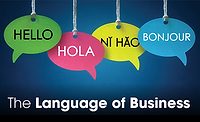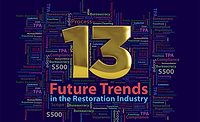Increased Knowledge Equals Increased Sales

Have you ever said about your business, “I just need somebody to answer my phones”? Maybe you consider that a lowly position that anyone should be able to manage, just a warm body talking into a piece of plastic. But the truth is, in an industry where certifications and training are considered an element of the cost of doing business, this is one of the positions where training is often overlooked.
As a contractor, much of your staff comes into contact with your customers at one point or another, whether they’re techs and production managers who work in the field or office and sales employees who don’t. But do your inside staff and marketing reps have any clue what your customers go through? Do they understand the work it takes to get the customers’ lives back in order? Could they give at least a rudimentary explanation of the services you provide to a potential customer?
Providing even a little restoration training to your office and sales staff accomplishes two objectives:
- It improves relations between them and your techs through better understanding of the work involved
- It can stimulate them to speak with greater authority and compassion to your customers
Let’s look at two non-technical positions where disaster restoration training can be of a great benefit to your company:
Receptionist. Depending on the other duties they perform, this position may also be referred to as an administrative assistant. Whatever their title, those who answer your phones are exceptionally powerful. Their words and actions may help to make or break a company. They’re the first – and sometimes the last – people potential customers speak to. The ability to display professionalism and empathy to a client at the same time is priceless. But once you add some restoration training, they can also sound much more knowledgeable.
Let’s say a potential client calls your company. After the initial information is gathered, they ask, “So what will your company do to fix this problem?” Which answer would you prefer?
“I don’t really know. Let me transfer you to someone who can answer that for you.”
or
“Depending on the type and scope of your damage, there are a number of ways we can help you. We have the certifications and professional equipment to get your life back to normal. Once our project manager surveys the damage, he’ll be able to provide more details.”
One problem with the first scenario is that those who can answer the question are usually on a job and not available. Not only is it a weak sounding answer that erodes faith in your company, but not getting the answers they feel they need right away while they’re hurting and vulnerable might cause them to go to a competitor.

In the second scenario, the staff member was able to quickly supply brief but satisfactory answers and give the client some peace of mind which can increase the odds that they’ll choose your company. Some other questions they should be able to answer are, “What sort of certifications does your company have?” and “What kind of equipment will you be using?”
Marketing Rep. If you were speaking with a salesperson and they couldn’t answer most of the questions you had about their product, would you buy from them? It’s doubtful. The more knowledge about disaster restoration your reps have, the more they’ll be able to speak factually and with familiarity on the subject. Sometimes the best reps are those who have a background doing the work and have transitioned into sales. In fact, if you have a tech who’s very personable and outgoing, you might want to encourage them to try their hand at marketing for your company.
Putting your office and sales staff through WRT, ASD or other classes would be great, but you may not have the time or means to do so. And it’s really not important for them to know about theory, psychrometry, gpp, cfm, fpm, and the like. In fact, for them to gain additional knowledge, to better explain the business, speak with greater authority and have greater empathy for your customers, one or two weeks on the truck may do it. There are also on-line training courses they could take that wouldn’t necessitate any downtime or require them to be away.
In 1597, Sir Francis Bacon said, “Ipsa scientia potestas est” (Knowledge itself is power). And the more knowledge your staff has, the more power they’ll possess that will help grow your business.
Looking for a reprint of this article?
From high-res PDFs to custom plaques, order your copy today!





